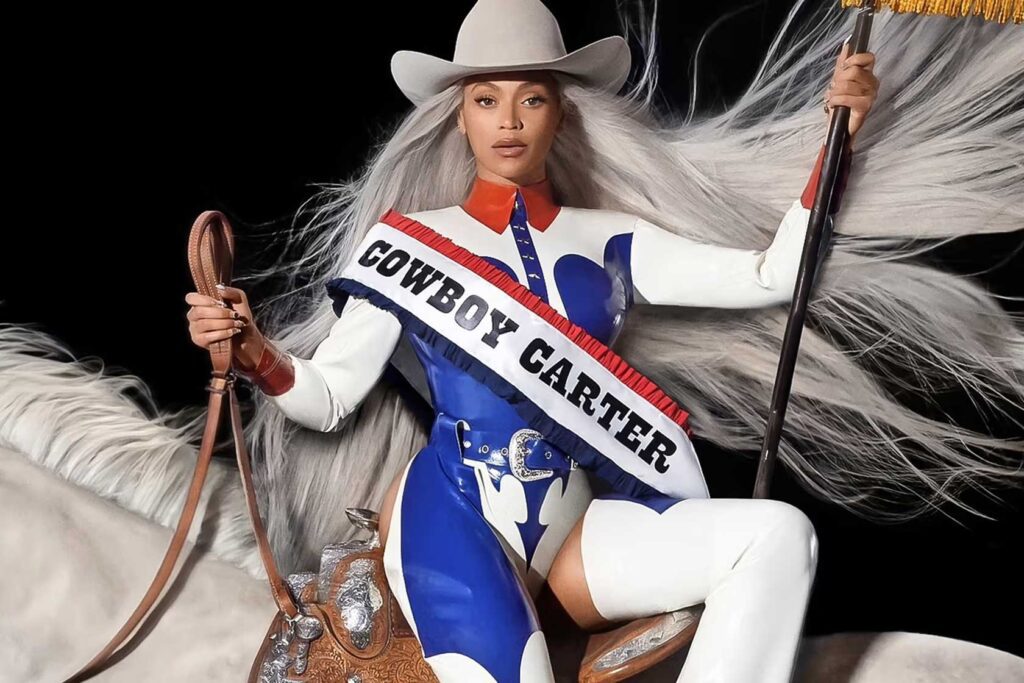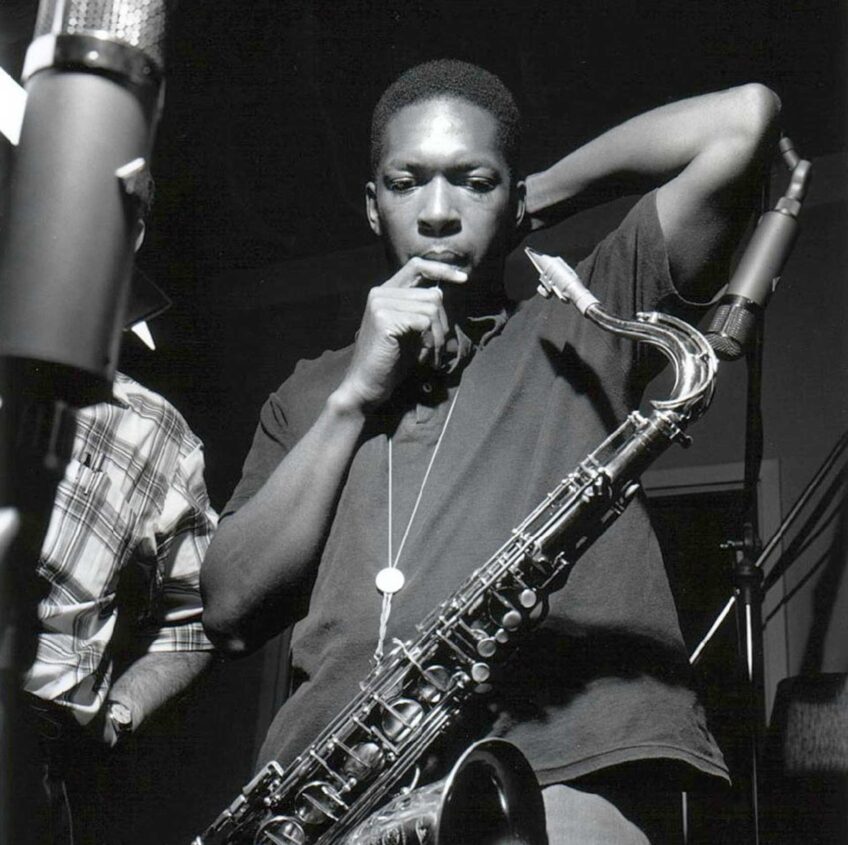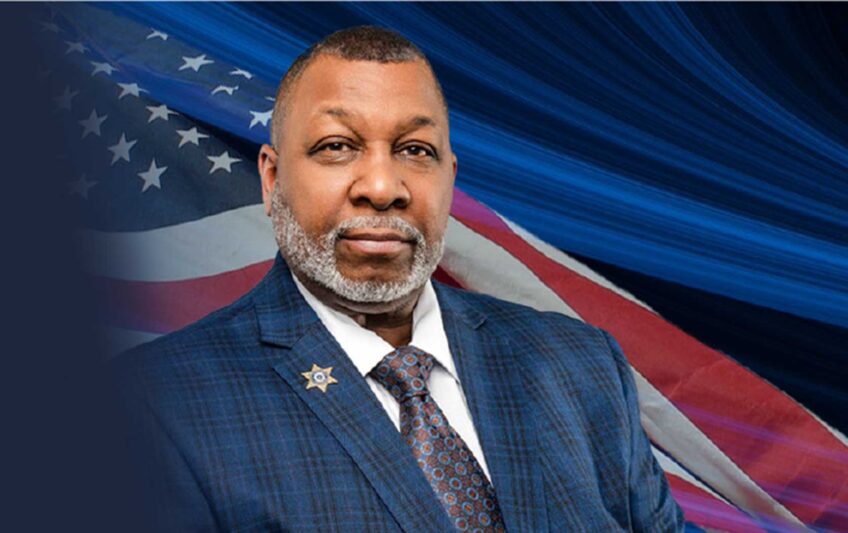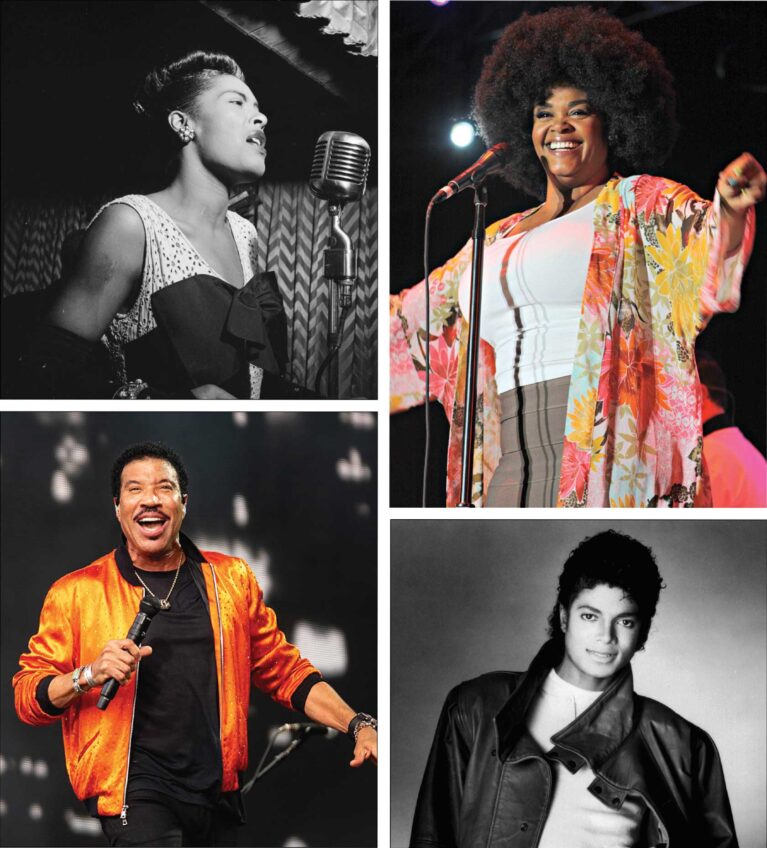
The Jazz Urbane Cultural Commentary by Bill Banfield
On March 29, 2024, Beyoncé released “Cowboy Carter,” a 27-track recording that she claims is not a country genre record, but a new Beyoncé record just “rooted in country.” America is our country. Black music is our music, and country music is our music, too.
Beyoncé did not invent the formula, the form or the forum for Black artists being interested in country music making, or its stylings.
From where I sit as a musician and a writer, this is an easy assignment, and relevant, as we are looking to more fully examine what we mean today by our country, our people(s) as in the folks, and what democracy and arts mean in today’s complicated and shifting cultural terrain.
I think we are all witnessing genre, style, brand and culture bending, breaking and record category bin busting. But does it also point to how popular culture is continually impacting us, and illustrate what it teaches us? I think we are here in the remake mode today. If we could say in this moment what a person’s perspective is or what a set of actions means and the implications, that might bring us to some clarity too, about our current steps in culture.
Music-making is essential and as fundamental as human existence. It is a critical sounding of how the planet breathes. The greater gift of music is song that carries story, human experience, raises questions, inspires joy and hope and burns great melodies and rhythms into the brain.
Beyoncé, in her music, does that. “Lemonade,” the song by Beyoncé, was to me what music should do as a carrier of culture and a signifier of the best we can become. Her grandmother, remember in that video, said, “We turn our lemons into lemonade.”
All the old folks in my family used to say that all the time. So a song can remind you of what we value most. So why Beyoncé again, and why now?
In Black music, artists have always defined American beats, songs, styles and cultural identities. It’s the music that has provided the “on-ramping” of many of our popular cultural banners, sayings, from swag to swing to all the songs in between we sing, from Duke Ellington’s 1943 hit, “It don’t mean a thing, if it ain’t got that swing,” from the spirituals to ragtime, blues to jazz, country to bluegrass, rhythm and blues, rock and roll, reggae, soul, rap to ragtime. That’s the Black music family line that forms the DNA of the cultural codes of American music.
Beyoncé’s emergence into the critical American country sing culture is nothing more than what Black artists have done in every kind of American-made music since the founding of the country. Black music is the foundational and mother-tongue music for all American popular music.
And this move and this music might just save America, once again.
Stevie’s “I Ain’t Gonna Stand For It,” Leadbelly’s “Pick A Bale Of Cotton” and the Pointer Sisters tune “Fairy Tale” were other decades’ renderings using artists who shaped their song styles and hits out of country music. And why? Well, because country music is so rich in style, swag and story.
Charlie Parker, the great American Black jazz saxophonist, innovator and genius whom country bluegrass innovators emulated, was a huge country music fan. In between his music sets on the road, he would listen to country music on the juke box. His musician friends would ask him, “Charlie, why do you listen to country music?” Charlie answered, “Have you listened to the stories?”
And it’s exactly listening to the stories of American song traditions that heals the souls of America, and our songs have been coming from all styles and doing this for decades.
Charlie Pride and Ray Charles come to mind for me as a young songwriter growing up in Motown, the epicenter of Black song and style. They both mixed country and gospel into their musical repertoires. And as a guitarist, I wanted to be like rock innovator Jimi Hendrix. If you were going to be in music you were going to be in a huge American music style mix.
Beyoncé moving into country music is just part of her and our DNA music code. Go Beyoncé!
Wait, she’s born in Texas!
Beyoncé was reported saying “Cowboy Carter,” was a five-year project and her own response to “an experience that I had years ago where I did not feel welcomed.” For me, that is exactly what a person of color or a person feeling left out of any kind of social frame would say.
That’s the American social country pie to bite into. This year, Beyoncé came to the 2024 Grammy Awards in full cowboy gear to be a statement about the American social pie, and at a nationally beloved sports event. And not her first time — did we forget Beyoncé’s “Formation?” More later. But I remember the story then, they said she was being anti-Blue and stirring up racial tensions. Really?
As a Black artist identifying her music style wrappings now in country music, she may very well be signifyin’, walking, and dancing in an oppositional stance to our associations of whiteness as an American cultural staple.
“Cowboy Carter” is a pop music example of the first Black woman to ever top Billboard’s country music chart.
The “Cowboy Carter” collaborations with Dolly Parton and Willie Nelson and the song “The Linda Martell Show” are references to the first Black woman to play the Grand Ole Opry.
Nevertheless, she declared on social media, “This is not a country record, it’s a Beyoncé album.”
As mentioned earlier, Beyoncé is from Houston, Texas. Like Motown or New Orleans or Memphis, her city breathed a rich arts intake of blues, country style songs, foods and stories of everyday people. If you look at the images from the record promos, we note that Houston is her home. And let’s remember, Black cowboy culture is from the 1800s in Texas, where one in four cowhands were Black. If we remember not long ago, Lil Nas X’s “Old Town Road” would stir similar questions about Black artist identity playing country music.
Let’s for fun think about sports, country music and politics for a moment. How about the ways Taylor Swift and Beyoncé recently factored into American social politics and shifting, chaotic cultural impulses and alliances? Fascinating.
In 2003, Natalie Maines said her band was “ashamed to be from the same state as [then-President] George W. Bush.” There was a huge backlash, and country radio culture dissed The Chicks and stopped playing their music.
With Beyoncé, critics celebrated the powerful performance, but online, Beyoncé was met with racist backlash, and some viewers labeled her “anti-American.”
Remember, Beyoncé had aligned herself with the Black Lives Matter movement and performed at the 2016 Super Bowl halftime show. With Black dancers in black leather and black berets, it stood out to critics as unpatriotic.
But these are nothing more than the continual rips and tears at Black creative artists that stand out in my mind as the ways of progressive politics in traditional conservative arenas.
Leonard Bernstein, the great American conductor portrayed in the recent movie “Maestro,” was also shunned for his embrace of the Black Panther Party, a group of young Black political progressives who challenged the American political and social caste system in the 1970’s. You go, Beyoncé!
This past year, Beyoncé included another Black woman in contemporary country music, banjoist Rhiannon Giddens, the Pulitzer Prize-winner for the opera “Omar,” whose music and scholarship highlights the contributions of Black Americans in folk and country.
Country music has always had the influence of Black music from Black artists. Without these influences, there would be no county music. Remember Charley Pride?
Beyoncé’s claim, “This ain’t a country album, it’s a Beyoncé album,” points to a centralized industry power structure that has controlled what country music is. Beyoncé in this moment is challenging that by taking the identity banner away. Beyoncé, I think, is record-boundary-bin-busting here, making country music an art form without racial boundaries. American songs sung or stylized in a rural or country fashion preserve the best our country has to offer.
This can now be seen as an act of reclaiming the music, which had been formerly perceived as a genre exclusively for white men and women.
Beyoncé here is again blurring the lines and separations, so all kinds of people can discover country music and artists as a part of the innovations needed to bring changes to our segregated system of music culture.
Francesca T. Royster, a professor of English at DePaul University and the author of “Black Country Music,” said that Black musicians’ contributions to the country genre have been historically present.
“Country can potentially be this bigger thing that lots of people are participating in,” she said.
I am actually optimistic and believe we are in a positive social cultural climate. If we look to “the spaces and places” in our progressive American cities that move forward, and if we could say in this moment what a thing, a cultural hub, a person’s perspectives, or what a set of our actions means to imply, that might bring us some clarity about our current steps in the culture.
I think it’s salvific for our times.
Beyoncé’s new album will show that country music can appeal to all kinds of audiences’ tastes. This is the power of music, arts and culture to bring people together as a part of our shared notions of peoplehood, nationhood and the creation of great music in culture.
Thank you, Beyoncé, we love the record.








